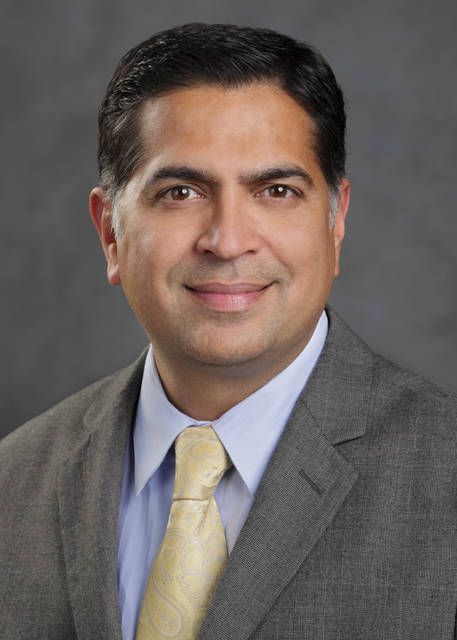Click here to subscribe today or Login.
LAKE TWP. — Uncertain about the distinction between stuttering and cluttering and other “fluency” disorders? You have a chance to see the difference in person, and to hear some of the best ways to evaluate a condition and treat it.
Misericordia University has decided to go a bit beyond the usual practice of having experts discuss a topic for the May 10 “Real-Life Solutions to Working with Clients with Fluency Disorders” symposium.
“We want to do something different and actually bring clients of ours to demonstrate techniques and solutions,” explained Glen Tellis, one of two speakers at the symposium.
Tellis is a professor and chair of the Speech Language Pathology Department at the university. He will share the spotlight with Professor Kathleen Scaler Scott, who has gained recognition for her work in fluency disorders. Both are certified fluency specialists
“We go around the world and do workshops on cluttering and stuttering, but we’ve never done one here,” Tellis said. “A lot of people requested we do a joint one.” That request will be met at the symposium, presented as part of the university’s Gabriel Bernabeo Distinguished Speaker Series.
“In the past there has been a lot of confusion about cluttering,” Tellis said, noting Scaler-Scott has written three books and was the first coordinator of the International Cluttering Association.
Most people understand the basics of stuttering, commonly recognized at the start of a sentence or word, Tellis said, with syllable repetitions (may-may-may-maybe), prolongation (sss sss sometimes), or a block when nothing comes out. Cluttering, in contrast, “is characterized as overly-rapid, or bursts, of poorly articulated or jerky speech.”
The workshop will also cover atypical disfluency, when there are breaks in speech different from those of stuttering — say, at the end of words rather than the beginning (this-is).
While children often develop and overcome stuttering or cluttering o their own at early ages — 3 to 6 is the common range, Tellis said — it is best to get a professional opinion to help catch the cases that could become lifelong challenges without intervention. The solutions to both disorders can vary and must be tailored to the individual.
Part of the plan for the symposium is to help demonstrate techniques that have been working in the real world, Tellis said. That includes working with cluttering that may “co-exist with a language disorder or Autism Spectrum Disorder.”
Being able to present real examples will help demonstrate the issues and solutions, he said. “We’re excited about actually bringing in clients.”
The workshop is for speech-language pathologists, special education teachers, general education teachers, occupational therapists, students and parents. The program offers Continuing Education Units and Act 48 credits. Occupational therapists will receive a certificate of attendance.
For information contact Pamela Rogers, Department of Speech-Language Pathology, at 570-674-8255 or [email protected]. To register and pay for the workshop online, please visit misericordia.edu/dss. Registration deadline in May 3.






